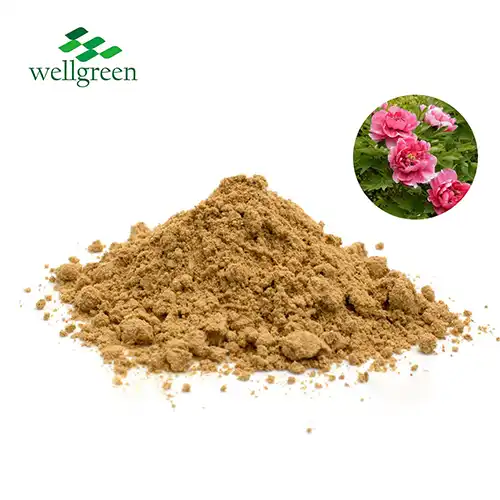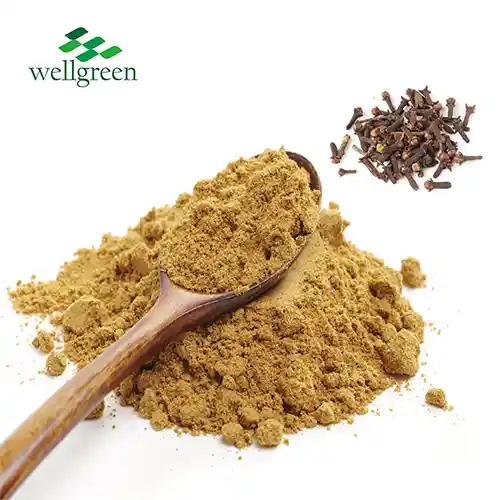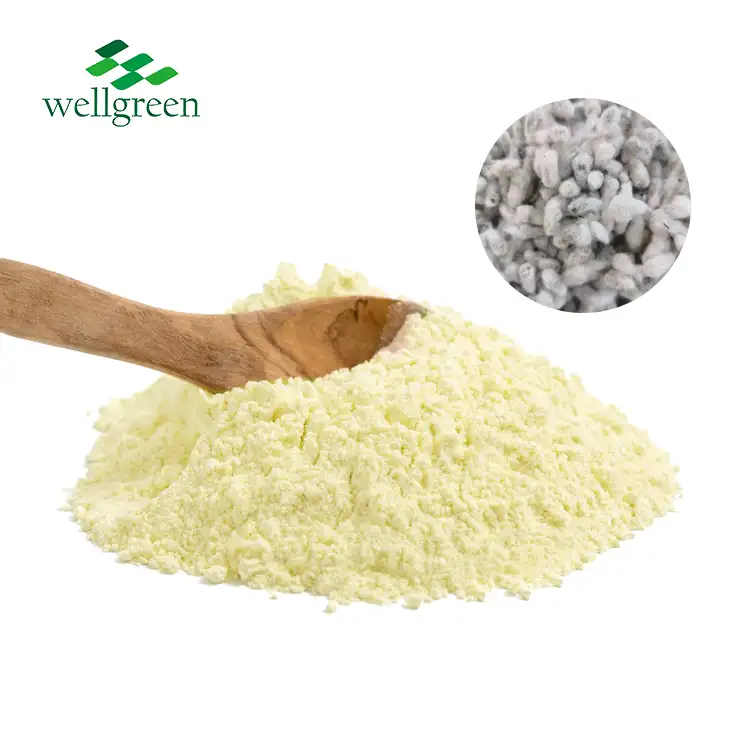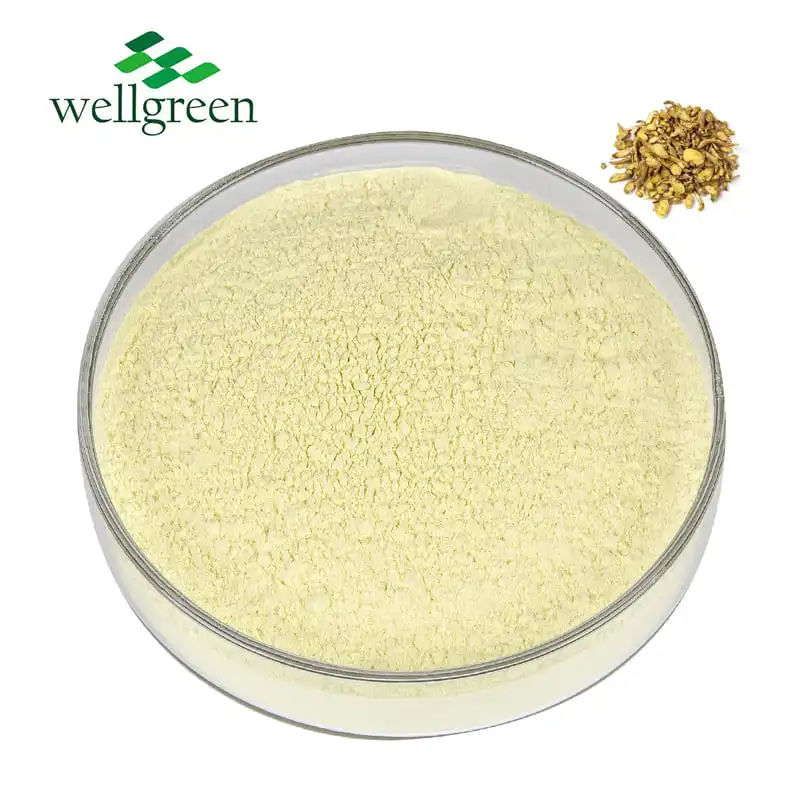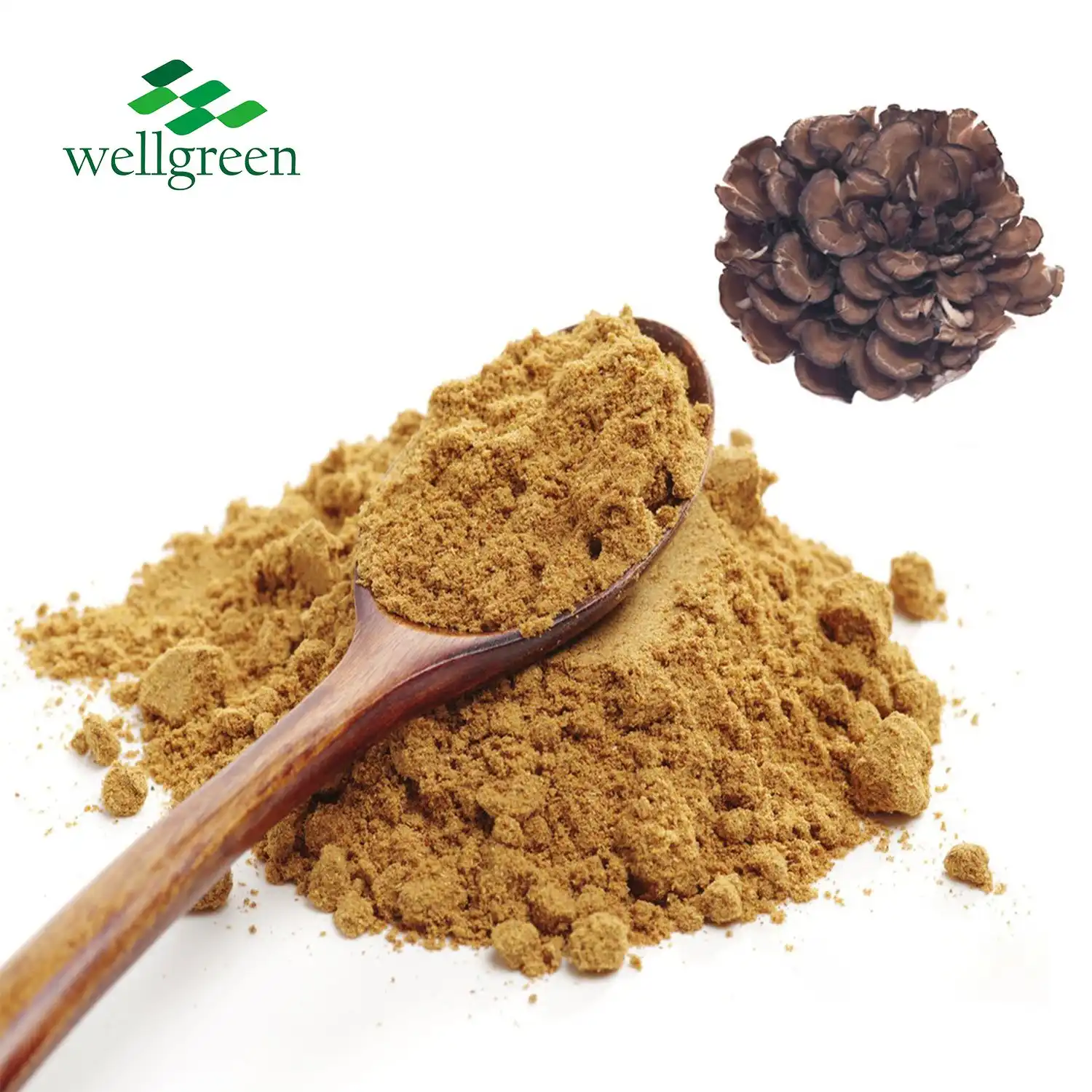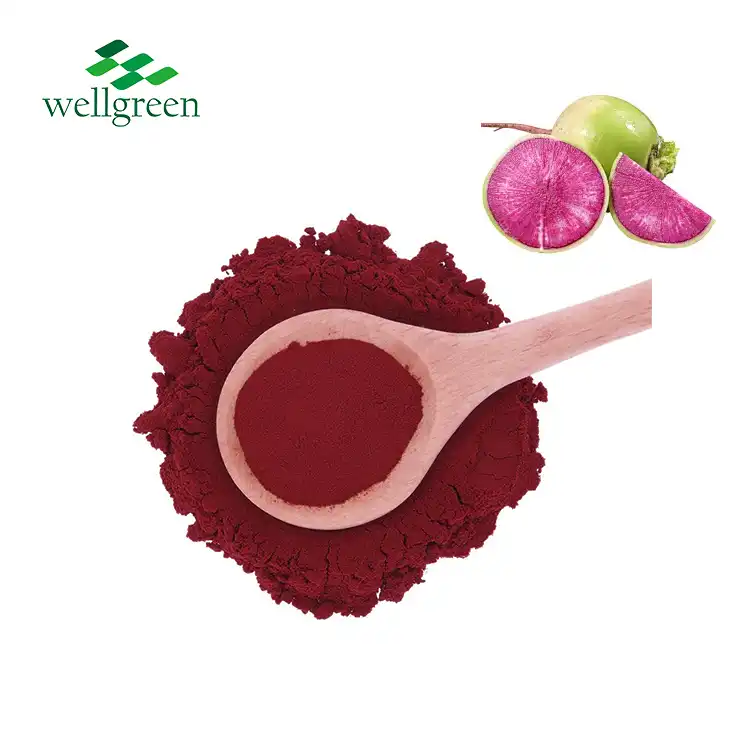Is Sulforaphane Powder Effective for Skin Health?
2025-04-27 12:55:38
Sulforaphane powder, derived from broccoli extract, has garnered significant attention for its potential skin health benefits. Research suggests that this powerful compound may indeed be effective for promoting skin health through various mechanisms. Sulforaphane's antioxidant and anti-inflammatory properties contribute to protecting the skin from oxidative stress and environmental damage. Additionally, studies indicate that sulforaphane may enhance skin elasticity, improve hydration, and support the skin's natural defense mechanisms. While more research is needed to fully understand its effects, the current evidence points towards sulforaphane powder being a promising ingredient for maintaining and improving skin health. As we delve deeper into the science behind this broccoli-derived compound, we'll explore its potential to revolutionize skincare routines and support overall skin wellness.
Sulforaphane's Impact on Skin Elasticity and Hydration
Enhancing Collagen Production
Sulforaphane powder has shown promising effects on skin elasticity by stimulating collagen production. Collagen, a crucial protein for maintaining skin structure, tends to decrease with age. Research indicates that sulforaphane may activate certain genes responsible for collagen synthesis, potentially leading to firmer, more youthful-looking skin. This effect is particularly intriguing for those seeking natural solutions to combat signs of aging.
Improving Skin Moisture Retention
Another significant aspect of sulforaphane's impact on skin health is its potential to improve hydration. Studies suggest that broccoli powder sulforaphane may enhance the skin's natural moisture barrier by increasing the production of ceramides and other lipids essential for skin hydration. This improved moisture retention can result in smoother, more supple skin, reducing the appearance of fine lines and wrinkles.
Regulating Sebum Production
Sulforaphane's influence extends to sebum regulation, which is crucial for maintaining balanced skin. Excessive sebum production can lead to oily skin and acne, while insufficient sebum can result in dry, flaky skin. Research indicates that sulforaphane may help normalize sebum production, potentially benefiting individuals with various skin types and concerns. This regulation can contribute to a more balanced, healthier-looking complexion.
Combating Oxidative Stress in Skin with Sulforaphane
Activating Nrf2 Pathway
One of the key mechanisms through which sulforaphane powder combats oxidative stress is by activating the Nrf2 pathway. This cellular defense system plays a crucial role in protecting the skin from environmental stressors. When activated by sulforaphane, Nrf2 triggers the production of various antioxidant enzymes, effectively boosting the skin's natural defense against free radicals and oxidative damage. This protective effect may help prevent premature aging and maintain overall skin health.
Reducing UV-Induced Damage
Sulforaphane has demonstrated remarkable potential in protecting the skin from UV-induced damage. Studies suggest that topical application of sulforaphane powder or consumption of broccoli extract rich in sulforaphane can significantly reduce the harmful effects of UV radiation on the skin. This protection extends beyond just sunburn prevention, potentially reducing the risk of skin cancer and photo-aging. The compound's ability to neutralize free radicals generated by UV exposure makes it a valuable addition to sun protection strategies.
Mitigating Environmental Pollutant Effects
In addition to UV protection, sulforaphane shows promise in defending the skin against other environmental pollutants. Urban pollution, smoke, and other airborne toxins can significantly impact skin health, leading to premature aging and various skin issues. Sulforaphane's potent antioxidant properties help neutralize these harmful substances, potentially reducing their damaging effects on the skin. This protective action may be particularly beneficial for individuals living in urban environments or areas with high pollution levels.
Clinical Studies on Sulforaphane and Skin Rejuvenation
Human Trials on Skin Aging
Several clinical studies have explored the effects of sulforaphane on skin aging. One notable study involving middle-aged women found that regular consumption of broccoli extract rich in sulforaphane led to significant improvements in skin elasticity and reduced appearance of wrinkles over a 12-week period. Another trial focusing on topical application of sulforaphane-containing creams reported enhanced skin texture and increased radiance. These human trials provide encouraging evidence for sulforaphane's potential in skin rejuvenation, though larger-scale studies are still needed to fully validate these findings.
Sulforaphane's Role in Wound Healing
Research has also highlighted sulforaphane's potential in accelerating wound healing processes. In vitro and animal studies have shown that sulforaphane can enhance the migration and proliferation of skin cells involved in wound repair. A clinical trial on diabetic foot ulcers demonstrated that topical application of sulforaphane-rich broccoli extract significantly improved wound healing rates compared to standard treatments. These findings suggest that sulforaphane powder could have applications beyond cosmetic skincare, potentially aiding in medical dermatology for wound management.
Long-Term Effects and Safety Profile
Understanding the long-term effects and safety profile of sulforaphane is crucial for its application in skincare. Current research indicates that sulforaphane is generally well-tolerated, with few reported side effects when used topically or consumed as part of a balanced diet. However, more extensive long-term studies are needed to fully assess its safety profile, especially for continuous use in skincare products. Ongoing research is also exploring the optimal dosage and delivery methods for maximizing sulforaphane's skin benefits while ensuring safety and efficacy.
Conclusion
The evidence supporting sulforaphane powder's effectiveness for skin health is compelling. From enhancing skin elasticity and hydration to combating oxidative stress and promoting rejuvenation, sulforaphane shows promise as a versatile skincare ingredient. While more research is needed to fully understand its long-term effects and optimal usage, the current findings suggest that incorporating sulforaphane into skincare routines could offer significant benefits. As research progresses, we may see sulforaphane becoming a key component in advanced skincare formulations, offering a natural approach to maintaining healthy, youthful-looking skin.
Contact Us
Ready to explore the benefits of sulforaphane powder for your skin health or product line? Contact Xi'an Wellgreen at wgt@allwellcn.com for high-quality, wholesale broccoli extract and broccoli powder sulforaphane. Our GMP-certified facility ensures premium quality and purity, backed by comprehensive testing and certificates. Let's work together to bring the power of sulforaphane to your skincare innovations.
References
1. Dinkova-Kostova, A. T., & Talalay, P. (2008). Direct and indirect antioxidant properties of inducers of cytoprotective proteins. Molecular Nutrition & Food Research, 52(S1), S128-S138.
2. Schwab, M., Reynders, V., Loitsch, S., Steinhilber, D., Schröder, O., & Stein, J. (2008). The dietary histone deacetylase inhibitor sulforaphane induces human β-defensin-2 in intestinal epithelial cells. Immunology, 125(2), 241-251.
3. Kerns, M. L., DePianto, D., Dinkova-Kostova, A. T., Talalay, P., & Coulombe, P. A. (2007). Reprogramming of keratin biosynthesis by sulforaphane restores skin integrity in epidermolysis bullosa simplex. Proceedings of the National Academy of Sciences, 104(36), 14460-14465.
4. Talalay, P., Fahey, J. W., Healy, Z. R., Wehage, S. L., Benedict, A. L., Min, C., & Dinkova-Kostova, A. T. (2007). Sulforaphane mobilizes cellular defenses that protect skin against damage by UV radiation. Proceedings of the National Academy of Sciences, 104(44), 17500-17505.
5. Riedl, M. A., Saxon, A., & Diaz-Sanchez, D. (2009). Oral sulforaphane increases Phase II antioxidant enzymes in the human upper airway. Clinical Immunology, 130(3), 244-251.
6. Talalay, P., Talalay, P., & Zhang, Y. (2007). Chemoprotective properties of sulforaphane: activation of cytoprotective enzymes. Science of Food and Agriculture, 80(11), 1579-1587.

